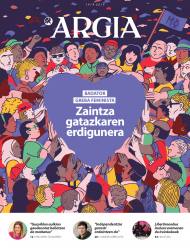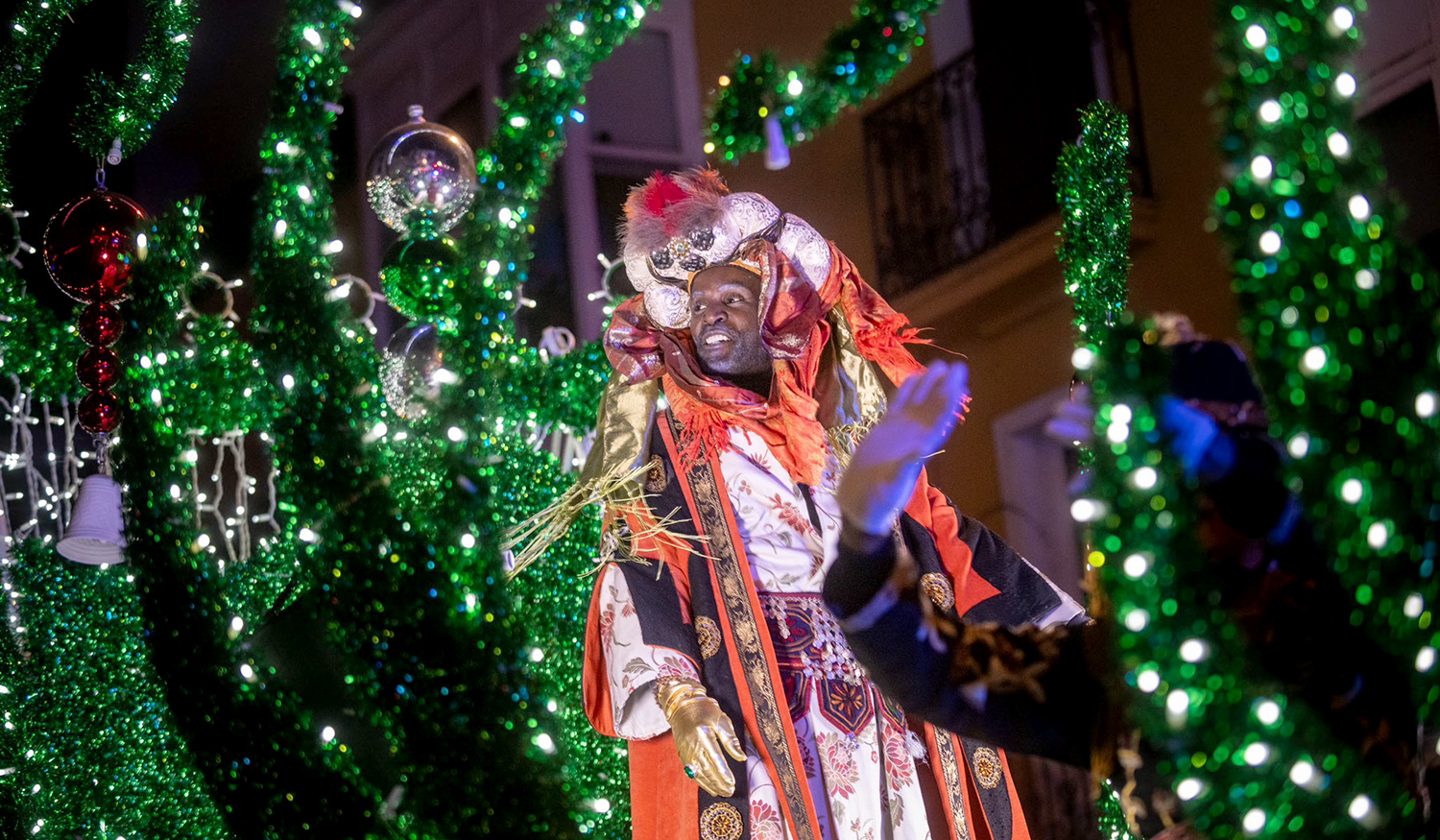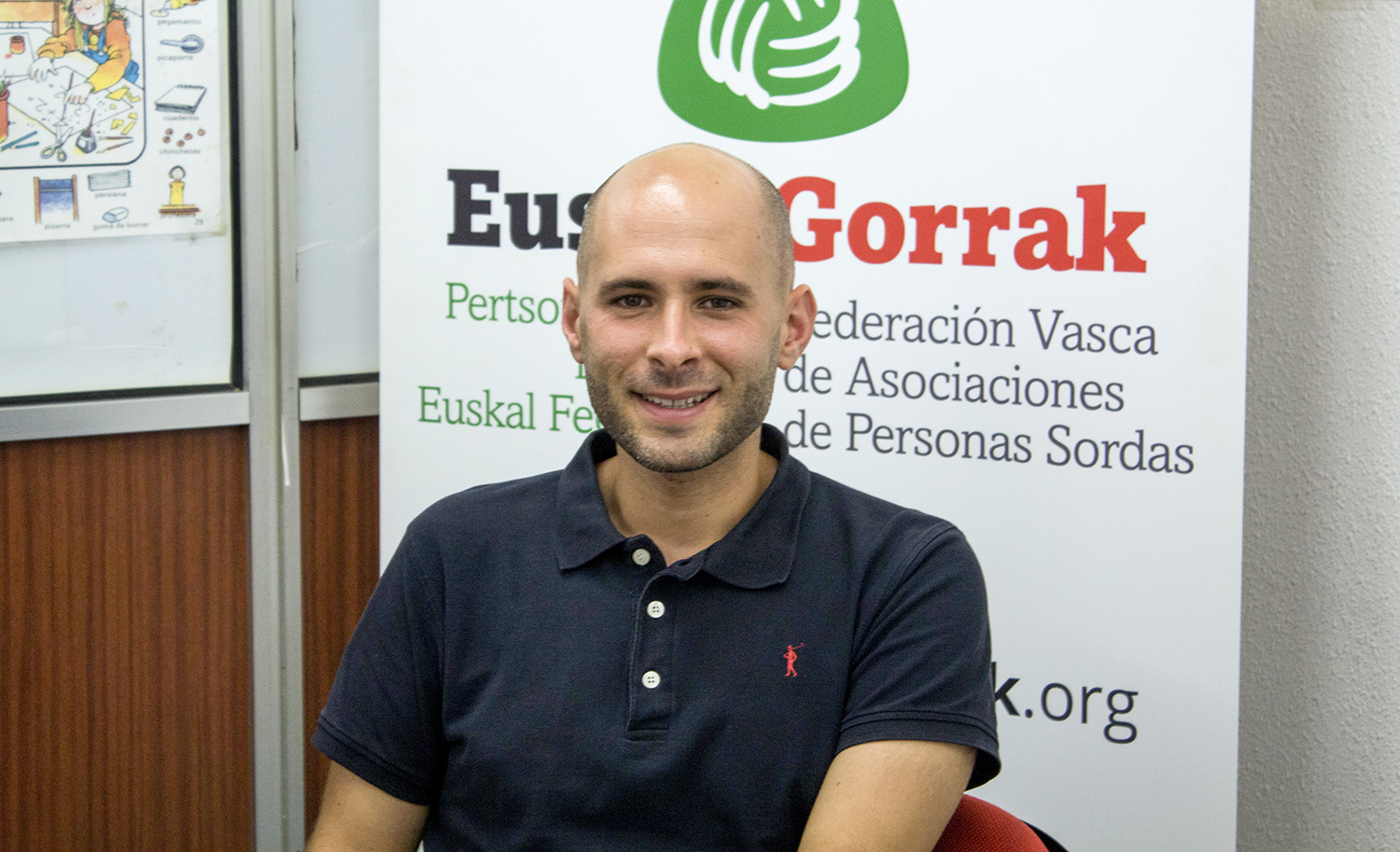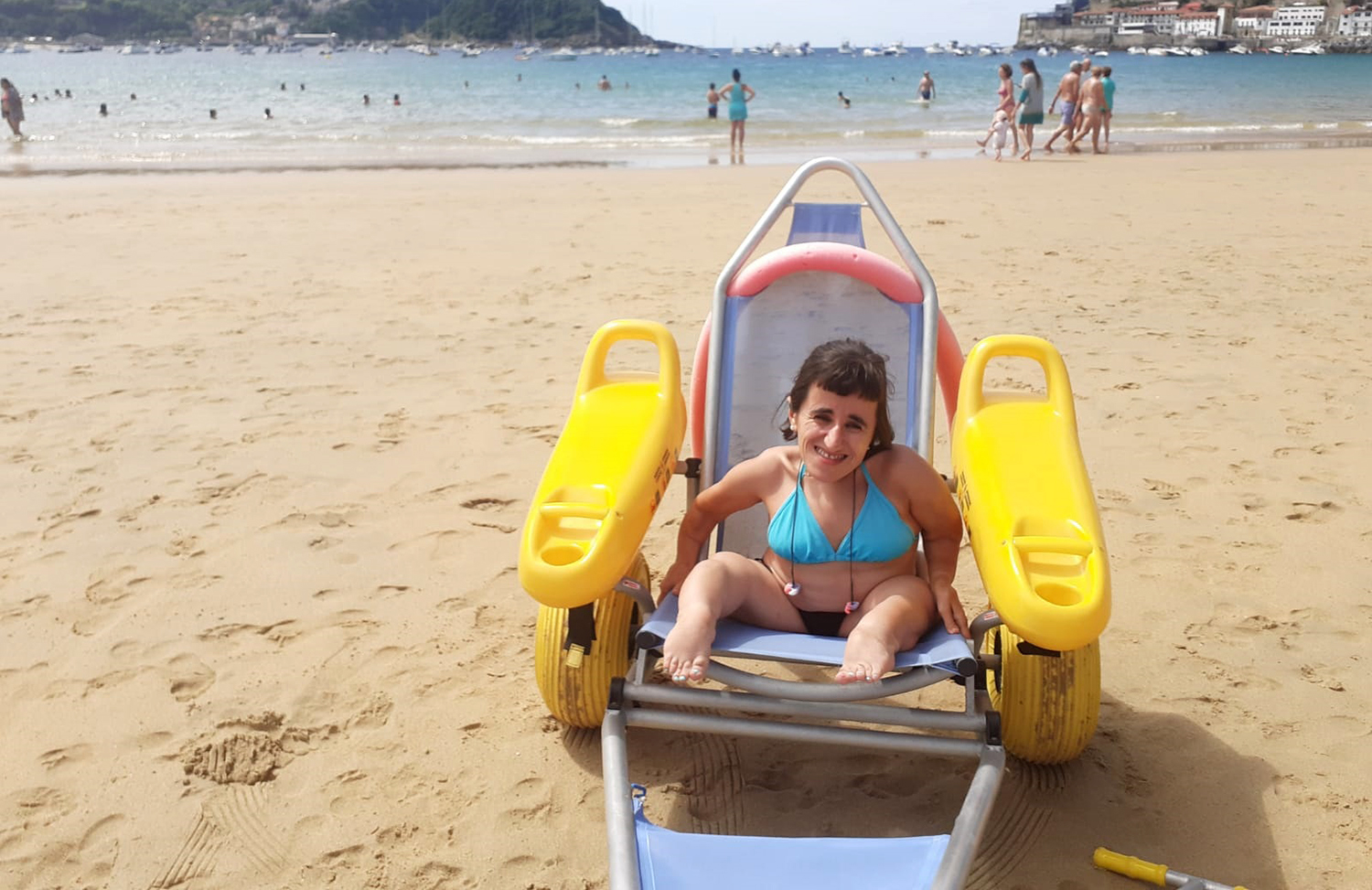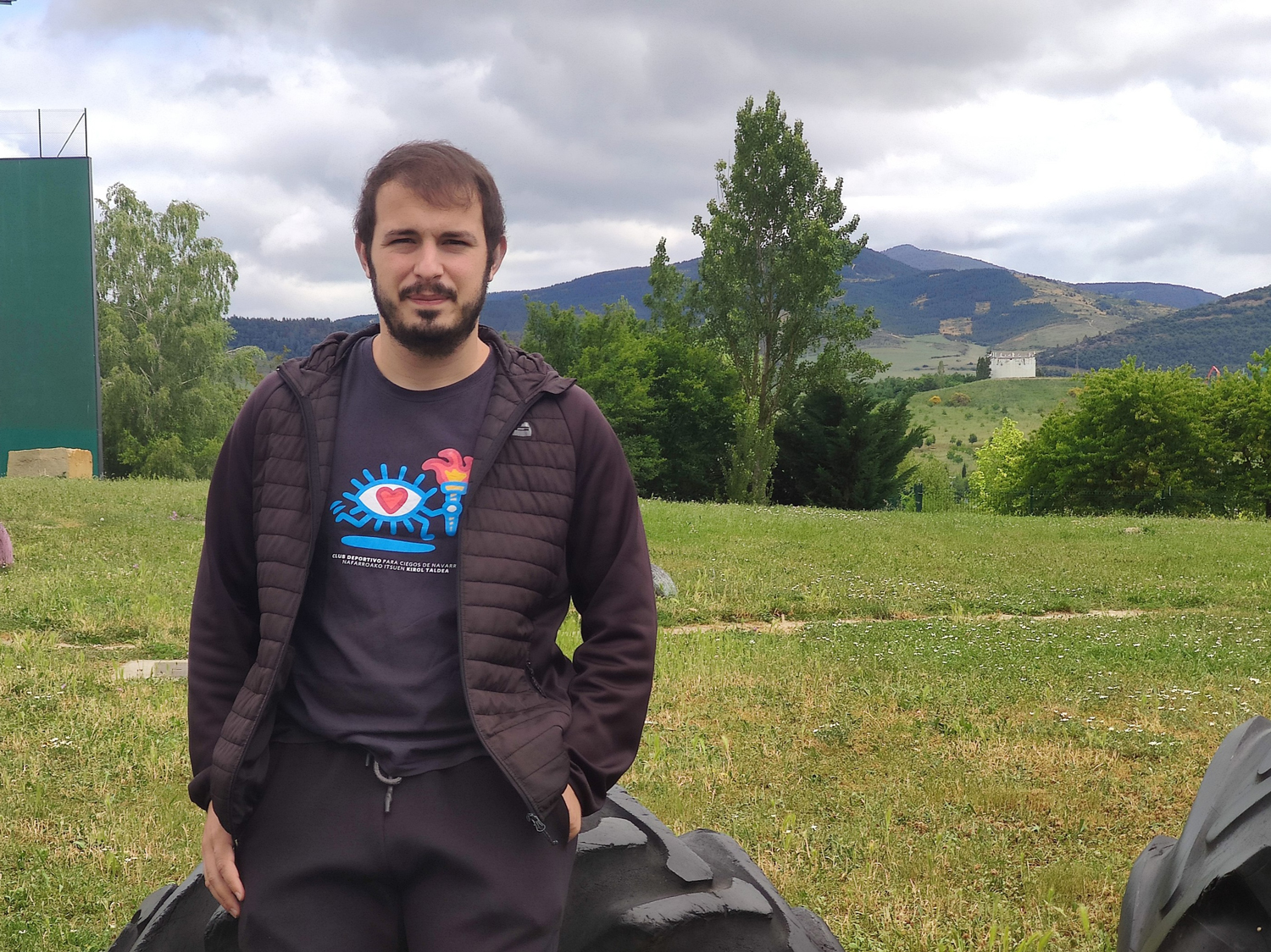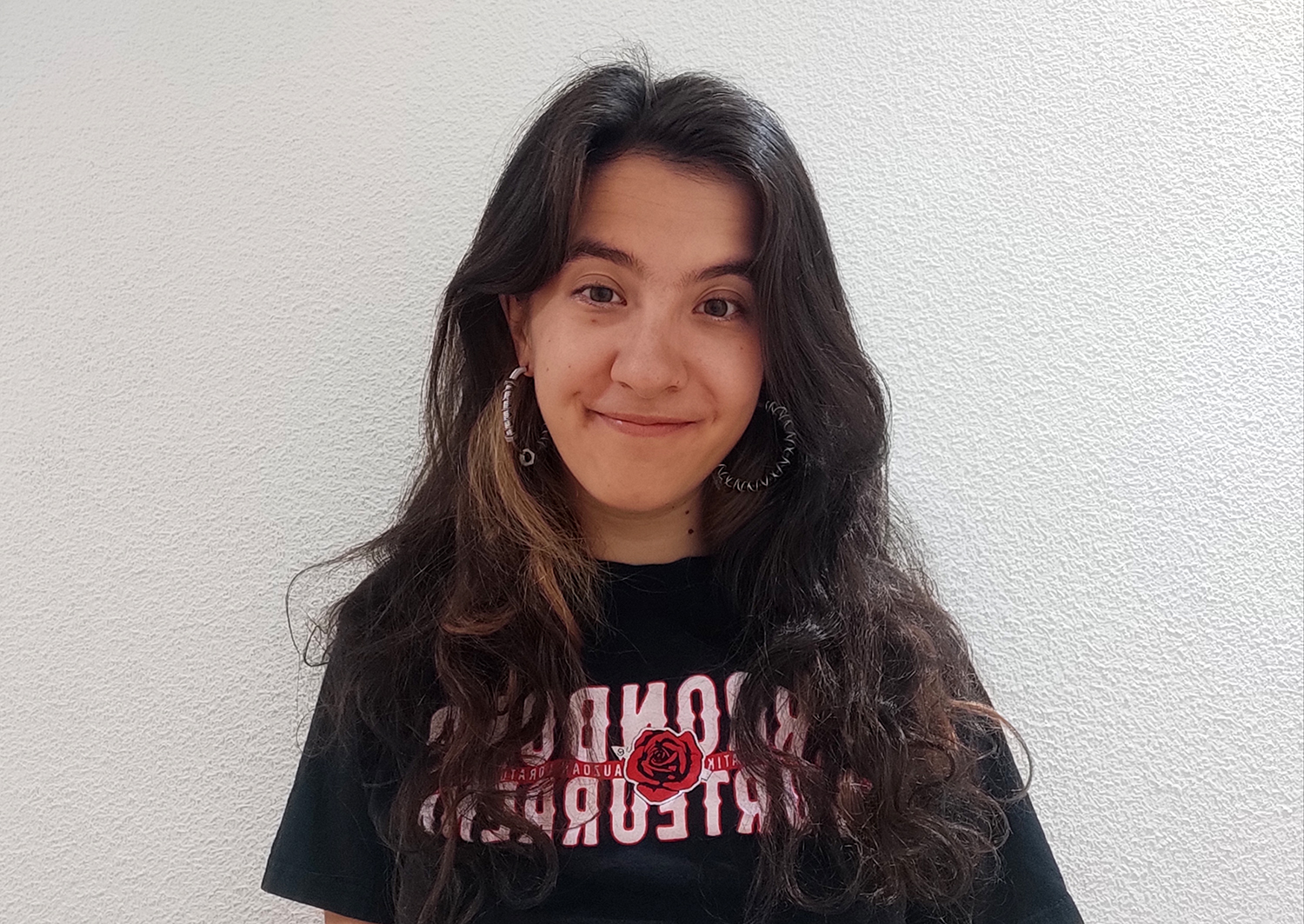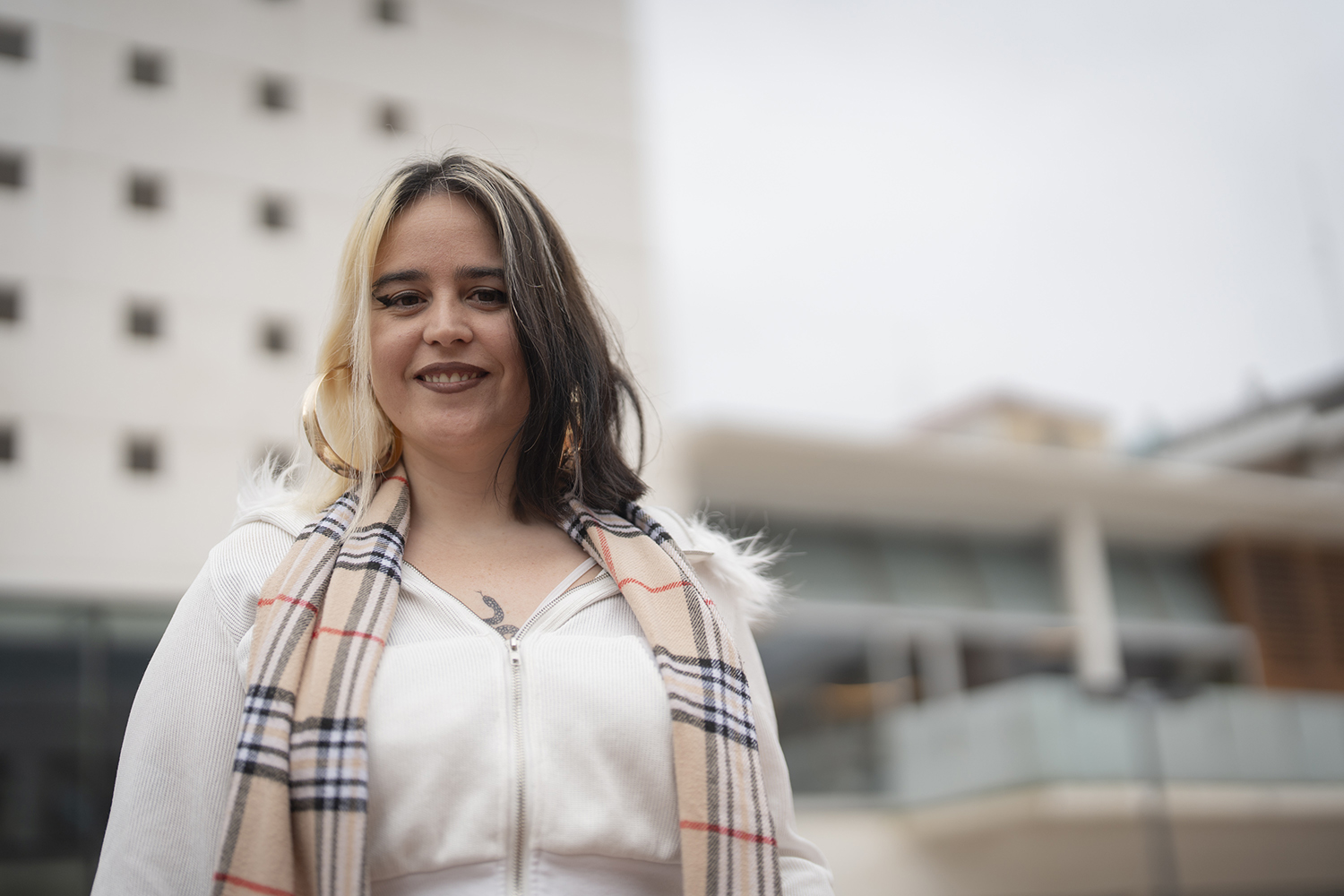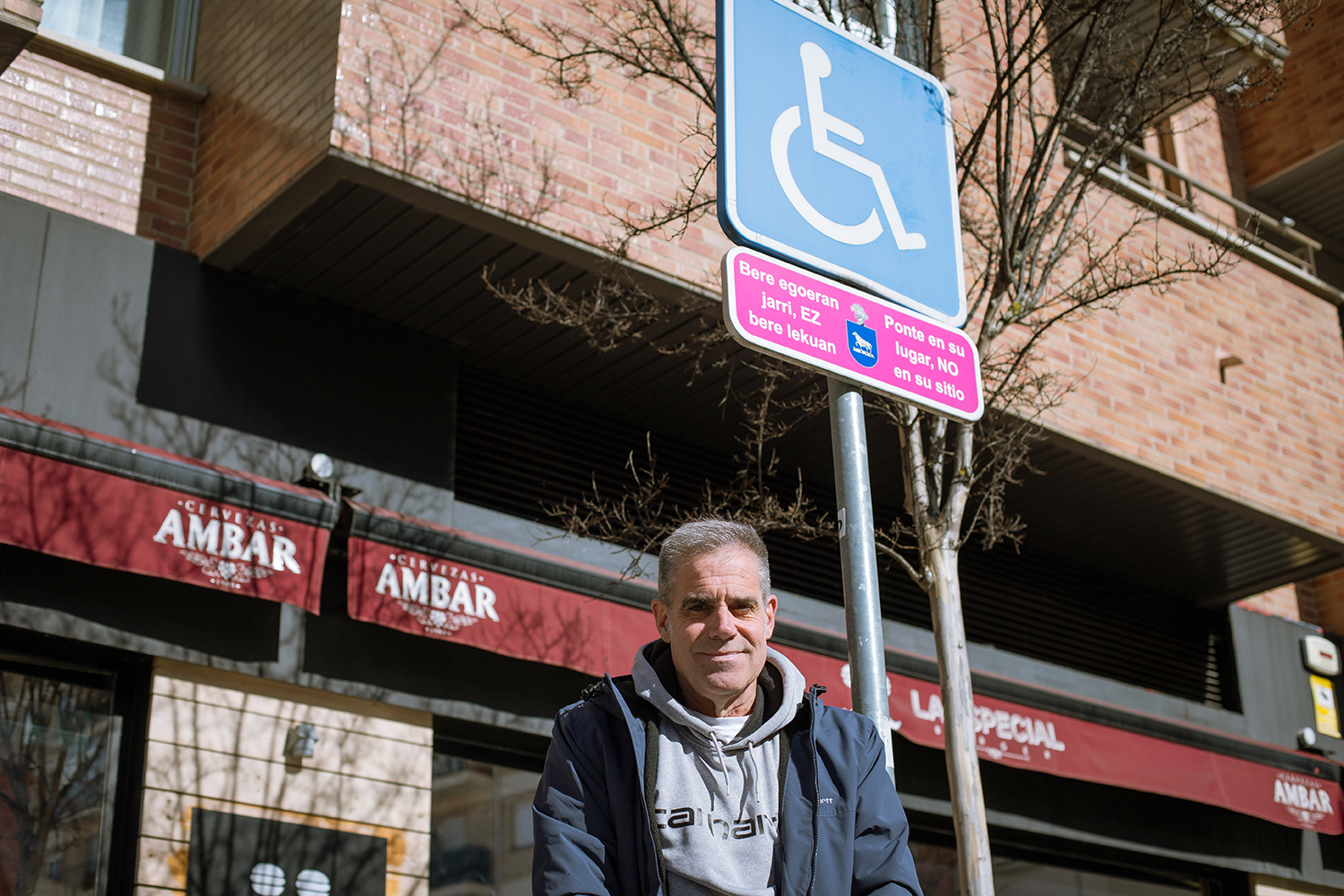"The orthoprosthetic catalog of Navarra is still in pesetas"
- A strange illness, of a rare name, left Erkuden Txokarro in the wheelchair four years ago, despite suffering from the disease since his birth. Sitting, however, does not mean standing still and that is what proves us day by day, calling out the rights of people with disabilities on the street or in the sports section of Ibili.
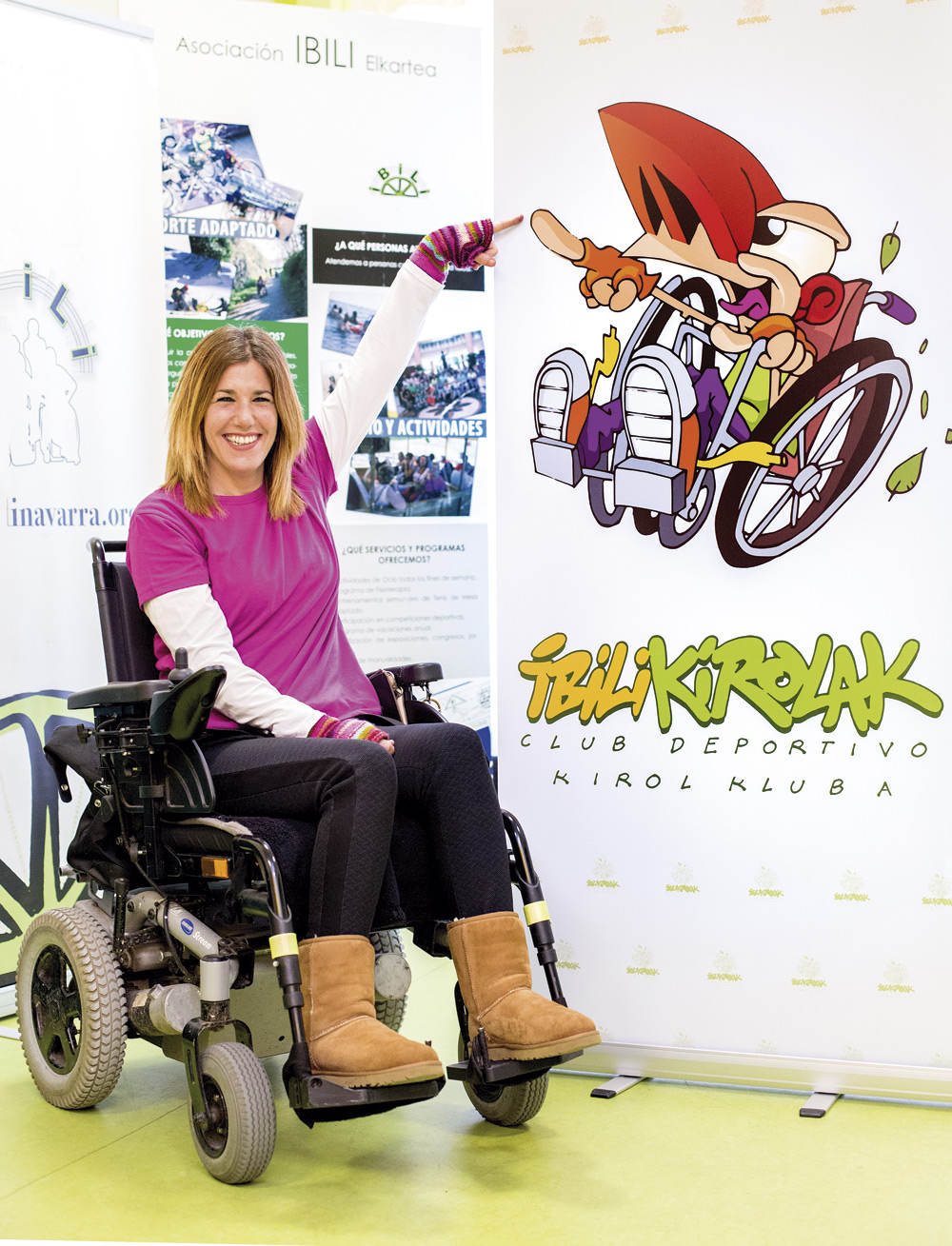
Arazo fisikoengatik Arte Ederretako ikasketak utzi behar izan zituen amaitu hurren. Bi seme-alabaren ama da. Margolari, jostun, eta eskulangile aparta. Duela lau urte Ehlers Danlos izeneko gaixotasun arraroa diagnostikatu zioten. Gorputzaren kolagenoaren mutazio bat da. Hezurrak bere tokitik erraz ateratzen zaizkio, eta hori dela eta, aulki gurpildunean ibiltzen da. Ibili, desgaitasun fisikoak dituzten pertsonen elkarteko kidea da, eta uztailetik kirol ataleko presidentea. Emakume alaia, aktiboa, eta pertsona guztien eskubideen defentsan beti lanean ari den borrokalari sutsua.
Since when do you have Ehlers Danlos disease?
I was diagnosed four years ago, but I always have this genetic disease. When I was a kid, I had a lot of sport and I had a lot of flexibility. Swimming, rhythmic gymnastics, climbing, mountain, skiing, athletics… did everything. I remember when I was 8, a Russian woman came for training. He was a coach from Spain and he proposed to sign us for gymnastics selection. His parents told him no, trusting that life would be very hard for me. He was very flexible, but at the same time he suffered a lot of injuries.
I never broke a bone. On the contrary, they would leave the site very easily, and then they would regain knowledge. The doctors said it was because I was very moved and I was doing a lot of sport, but I had something. When I didn't find any explanation for my problems, at age 10, I was sent to the psychologist, who said everything was psychosomatic. He said that I did the damage to myself. I was stunned and lost all my self-esteem. So I decided not to tell anyone anything.
So you decided to continue in secret?
That's right. I didn't say anything until I got to work. I studied fine arts in Bilbao, but I had to leave it because I couldn't even bring paintings. With any backpack, it hurt a lot. Then I was working in an amusement park drawing, but on my wrists they hurt a lot, and I also had to leave that. Then I started working in a bookstore, but I thought I couldn't move on because of my shoulder problems. After seven operations, doctors began to study the other parts of the body and then discovered that it had knees, elbows, ankles -- all the same. Doctors couldn't guess why. One said he had fibromyalgia. I did so until a Occupational Health doctor told me that I had all the symptoms of Ehlers Danlos disease. Everything was clarified to me right away. I saw on the screen of that doctor’s computer all the things that happen to me: joint alterations, nail breakage, skin redness…
How long have you been in the wheelchair?
Since I was diagnosed four years ago. So they told me that it was best to get out of the house in a wheelchair, not to get the joints out of their place, and to stand in the house, to maintain the muscles. I have to seek that balance.
"The bag I have on the bench has a price of 100 euros in the orthopedics store. I bought it for ten euros and I adapted it so I could get stuck in the chair."
What do you do when a joint comes out?
Most of the time I get it. Finally, know your body a millimeter away. According to my face, my children also know how I am at every moment. I have my bike at home and I also stretch every day, if not after so many hours sitting, my body becomes macerated. Sometimes I have to lie down so that all the parties go back to their place. For example, I sneezes and takes my shoulder out. On the other hand, I got up and I immediately made a spagata right here. People are astonished at this, because we always associate sitting in a chair with lack of mobility, but my problem is the opposite: excess movement.
What has changed since they made the correct diagnosis?
Everything has changed. The disease is uncured and I don't know how I'll be in ten years' time, but with the diagnosis and the chair they've removed a weight from me. First of all, I've seen that I'm not crazy and that I was right. As this disease is a mutation of collagen, it affects the whole body, not just the joints. In all internal organs, in the eyes… The most visible thing is the outside, but the most dangerous thing is inside. If a heart artery suddenly breaks, it's gone, for example. There is an autonomy of dis. This means that the functions of the central nerves are touched and do not work well. One example: my body doesn't control its temperature well. I can go down unconsciously to hypothermia. In addition, I often have disturbances in my heart beat or tension. These are flu-like symptoms and sometimes I have to go to the emergency room. Many times I don't realize it. I start talking slower, like saving energy.
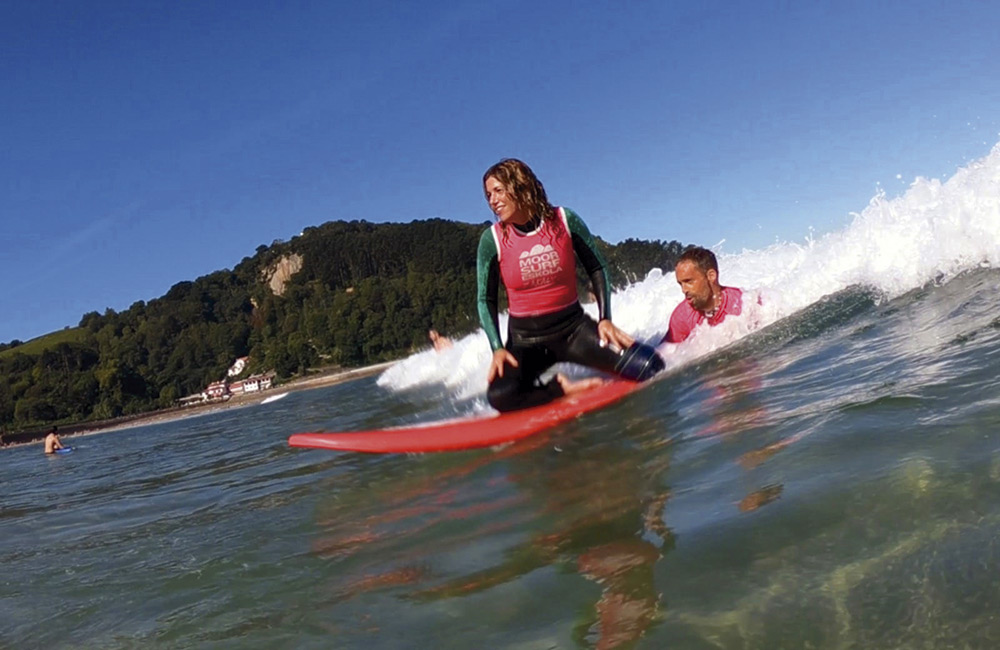
Does it hurt?
Always. Three years ago, I was prescribed opioids to take three times a day, but step by step. When I can't take a painkiller anymore, but it's not opioid. They're stings like labor pain. The worst is the night. I don't remember when I slept after the whole night.
What has the chair brought you?
Since I am on the bench evil has stabilized, although this chair is not the most suitable for me. This is what Social Security gives you. The orthoprosthetic catalog of Navarra is still in pesetas and the products that are there are also from that time. It now seems that it is going to be renewed, as Parliament approved two years ago. Let's see if they do it soon. If I want a suitable chair for me, I have to pay out of my pocket, EUR 6,000 or 7,000, but being a pensioner, it is impossible for me. I charge EUR 842 a month, I am divorced and I have two children, one of them celiac.
How do you see the future?
I don't think much about it. Since I got the diagnosis, I'm enjoying day-to-day, because tomorrow I don't know how I'm going to be. But that thought can serve everybody.
Do you fear that your children can inherit evil?
Being genetic, it can happen. My three grandparents were very flexible and lived until the 1990s. They had pain and some symptoms of the illness.
My son doesn't seem to have anything extraordinary. The girl is very flexible, but doctors say she may have inherited flexibility, but not the disease. You can't detect at the moment, and the only thing you can do is you're observing. The truth is, I had a lot of problems for her age, so ... And if we had it, we'll move on. They have my experience because they are also part of this process. This is reality, and you know it. They're very internalized. When they brought me the chair, they prepared a circuit in the patio to start training with pots.
When they say “I admire you”, I flipped. I can be a child, even if I'm a wheelchair!
The positive attitude you have is to admire…
In a situation like this, you can stay crying at home or move on. I have learned to give importance to things, no more and no less. And the things that are wrong must be denounced.
Why are you in Ibili?
Yes, I fully agree with its vindictive and active character. From the beginning, I found them quite punkis and I am very happy here. We operate in an assembly way. People bring out proposals and ideas on the table and look for ways to carry them out. At Ibili Kirolak, for example, the possibility of practising badminton at the beginning of the course was discussed. We started working, and right now, at the Rochapea sports center, we have a place to train, and we've created the team. Now we're looking for coaches. We can practice any sport. After all, all sports are adapted, because nobody has been born with skis, as far as I know.
What sporting offer do you make in Ibili?
Paddle, badminton, hand-bike, horse riding, half marathon, water activities (swimming, gymnastics and diving) and now we start with climbing.
And you've seen yourself on the surf stage...
Yes. I started recently with Aitor Francesena Gallo and other friends and I love it.
What challenges do you have for the future in the partnership?
We don't have a young boy or a young boy and I'm sorry. It is understandable that being young it is not very attractive to be in such an association. That is why we want to make other proposals for leisure and sport. They want the same life as other children and young people do, of course, but they don't know where to go. We give these people new opportunities to do whatever they want. We want to fill this gap.
Where do you get funding from? Just public subsidies?
No. As far as possible, we want to be autonomous, also in order to manage the partnership. That's why we're looking for our revenue by making different initiatives or doing and fixing things in our factory. The route of social patronage is also very interesting: here in Navarra, if a person makes a donation, 80% of that amount will be returned to you when making the income statement.

Is it more expensive for you to practice sport?
No doubt. I believe that the market often takes advantage of us in all areas. We need some things and we have to take what they offer us at the prices they ask us for, because there is nothing else. That’s why we at Ibiliko propose to adapt, shape and repair our chairs, sports tools and things we need for everyday life. We have a workshop to make our inventions. Ours is self-management. My bag in the bank, for example, in an orthopedics store costs 100 euros. I bought it for ten euros and adapted it for me to put it in the chair. Anything with the label “adapted” or “disabled” is greatly enlarged.
Recently we saw you in my house, it's not in my prison campaign.
This is a State campaign organized by the COCEMFE association to demand the accessibility of housing for people with disabilities. I lived on the third floor and I had to move to another house, because I didn't have an elevator. I had to crawl down stairs, but the climb was harder and with purchases it wasn't possible. We went to a house on the ground floor of my mother-in-law, but as I separated from him, I had to look for another house. Finding a rental is very difficult. My parents have to pay me the rent because I can't.
And you don't have subsidies?
I went to the Government of Navarre and was told that I was not entitled to an official shelter because I owned a house, and that, although it was not conditioned, the height of the stairs was not what the law considered as a minimum. It seems to me surreal. Who came up with this rule? In the end, as always, you have to fix everything by paying money. People working in wheelchairs, or many of the elderly, live without being able to leave their homes. By 2017, what the universal accessibility law says had to be put in place, but there is a lot to do.
How do you feel in those cases?
I feel like we're invisible. They're always speaking on our behalf and for our sake, but they rarely give us the floor. In daily life there are many examples: In the villavesas of the Comarca of Pamplona (buses) we cannot pay, as the machine is only in the narrow previous access. There are eighteen adapted taxis throughout the region of Pamplona, but they cannot be booked in advance. Sometimes you have to wait an hour or more. The systematic occupation of parking spaces is also denounceable. We're fed up with hearing that from "just five minutes." Going to group dining, to the movies or to a sports championship is a thousand times more difficult for us. In the end, it's easier to stay isolated in the ghetto.
Tired even of pity?
Yes, of course. Or when they say “I admire you” I flirt. I can be a child, even if I'm a wheelchair!
It makes us sad, but they don't want us to talk too much either. They want us to be subordinate and silent, because when we start to speak, all the injustices, loopholes and deficiencies that we have with us become apparent.
“Ez dut sentitzen mugarik nire gorputzean. Muga guztiak kanpotik etorriak dira. Orain arte egin nahi izan dudan guztia egin dut, agian besteek ez bezala, baina egin dut. Egun, ezintasuna aitortua izanda, lehen baino denbora gehiago dut eta bizi kalitate hobea”.
“Campeones filma ikusita jende asko hunkitu eta harritu da, hain zuzen jendartea ezintasun edo urritasun bat duten pertsonak entzutera ohituta ez dagoelako. Nazka-nazka eginda nago besteek gure izenean hitz egiteaz. Galdeiguzue guri zer nahi edo behar dugun. Ikusezinak bagina bezala tratatzen gaituztenean, errebeldia puntua ateratzen zaizu”.









